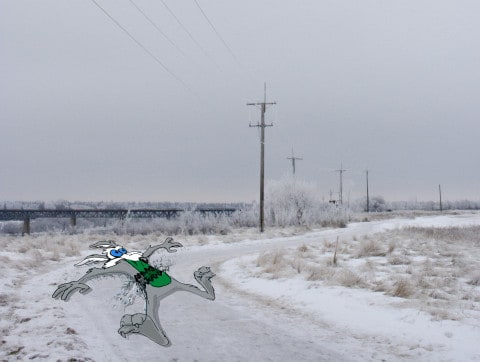From Jan. 21–23, University of Saskatchewan students, faculty and staff, along with the general public, are invited to take part in a series of events which aim to promote the arts community within Saskatchewan and increase opportunities for writers of all levels and genres.
This will be the sixth installment of the Writing North conference, featuring published authors and artists from across the country, including keynote speaker Dave Bidini, Canadian musician, filmmaker and author. This year’s theme is “Roadkill” and will feature presentations surrounding life journeys and road trips, among other generally related topics as interpreted by the authors.
The conference will span three days this year, beginning with a fundraiser at The Woods Alehouse for Sage Hill Writing, a local arts company that provides professional development opportunities for writers at all stages of their careers.
Jeanette Lynes, director of the master’s of fine arts in writing program at the U of S and member of the English department’s research, scholarly and artistic work committee, speaks to the value of this type of programming.
this type of programming.
“There’s a sizable social dimension to Writing North each of the nights; it’s the kind of event where you can just kind of hang out and socialize, and meet authors and other writers,” Lynes said.
While the event is a collaboration between sponsors such as the U of S Department of English, the College of Arts and Science and the Saskatchewan Writers’ Guild, among others, many students are also playing roles to make the conference a success.
According to Lynes, several students in the MFA program are involved this year from social media maintenance and promotion to book table management and general on-site production assistance.
“The work behind the scenes to propagate a culture in the arts is quite considerable and once you have been behind the scenes in organizing arts events, I think you really develop an appreciation for the rigor and energy that people are willing to expend to bring people in the arts together,” Lynes said.
The remaining events will be held at Louis’ Loft and include four featured authors: Brad Fraser, nationally-renowned playwright from Vancouver, Donna Kane, successful poet, essayist and short-fiction writer, Saskatoon-born Lee Henderson, a graphic novelist, and dee Hobsbawn-Smith, writer-in-residence at the Saskatoon Public Library.
“We always try to have a range of literary genres, every year we usually have a playwright, a poet, a fiction writer, sometimes we have a nonfiction writer. We try to take genre into account, we also try to have a gender balance. We’re always trying to have diversity in our selection,” Lynes said.
Tracy Hamon, program manager at the Saskatchewan Writers’ Guild and fellow event co-ordinator, has been involved with the conference since its inaugural year in 2010 and believes this is a unique opportunity for the campus community.
“It’s beneficial to students — especially the Saturday craft talks [on Jan. 23] — because you are learning from writers that are out there making a living as a professional writer, tips and tricks about writing, the craft of writing, about their genre, how they go about getting out there and making their work known, how they create the work and so it is a different sort of thing than just sitting in the classroom and reading a book and learning about the book,” Hamon said.
Not only are attendees treated to an experience promoting a community passionate about words and writing, but there will also be free food and refreshments during the reception both nights, which Lynes points out is a bonus for artists and students alike.
“I think that conferences like this are an excellent way to link the university to the wider community and collaborations like the one we have with the Saskatchewan Arts Board is really important as well. You get a critical mass of writers and artists, and it creates energy. I think that it’s a way to inspire writers to keep going,” Lynes said.
Hamon echoes Lynes, and as a published poet she insists that the conference is only one of several ways young writers can bolster their writing goals and build on that inspiration.
“You have to realize that if that’s the path you want to take, then make sure you go to readings, take workshops, it doesn’t matter what genre the workshop is sometimes, you just have to get out there, you have to network, you’ve got to meet people, you’ve got to make yourself into that writer.”
—
Photo Illustration: Jeremy Britz / Graphics Editor
Leave a Reply